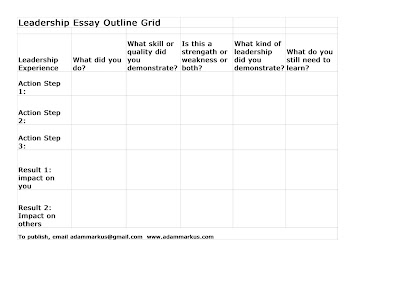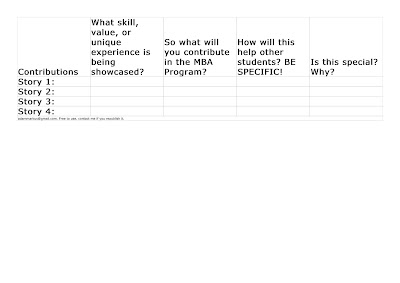Dartmouth Tuck MBA Essay Questions for Academic Year 2012-13
Aug, 03, 2011
Categories: Admissions Consulting | Essays | MBA | MBA留学 | Tuck
YOU CAN LEARN QUITE A BIT FROM ATTENDING A TUCK EVENT
Tuck 2011: The Tuck community is like family. Literally for those who live on campus since they spend most of time together. Everybody is friendly and you don’t need to worry about making friends here. From an academic point of view, collaboration between students is highly emphasized in Tuck and you will experience and learn to work together with others.
Keep in mind that according to Dawna Clarke in “Tuck’s holistic admissions process“ video, leadership ability and/or demonstrated potential is one of three key common characteristics of Tuck students (see my analysis of Question 4 for the other two). You should most certainly provide a full answer to this question, one demonstrating that you really understand your strengths and weaknesses as a leader. Weak versions of this essay will focus too much on simply telling a leadership story and not enough on self-analysis of leadership ability. most meaningful
Since the leadership experience you write about should be he the one that you consider most meaningful, you clearly explain that. Applicants frequently assume the significance of a story without interpreting it sufficiently. Make sure you have clearly explained why the particular leadership experience you write about is meaningful to you. This is not just a function of explaining your strengths and weaknesses as a leader, but of actually explaining why this particular experience is so significant.
I have developed the following grid to help you outline leadership stories. The categories this grid employs may go beyond any particular schools essay requirements. Filling it out completely will help you write about your leadership in a way that will help convince admissions of your leadership potential. 
How to use the grid:
1. Decide on a specific story.
2. Identify the most significant things you did in the situation, these are you action steps.
3. For each action step identify:
- What skills or qualities you demonstrated to complete this step.
- The strengths you demonstrated to complete this step.
- The kind of leadership you demonstrated.
- What you still need to learn about leadership.
4. Think about the results and identify how they relate to your action steps. So, at minimum, you should be able to state the impact on others and/or yourself.
5. After completing the chart you will see that some aspects of your action steps may be repeated. If there is a total duplication and nothing new is shown, either you need to redefine the action step or you may decide not to focus on it very much.
6. Once you think you have two to four fully worked-out action steps for a story, start writing your essay.
7. Next start re-writing. Eliminate duplicate points made between action steps. Make choices about what parts of each action to step to highlight. Given that there are usually word limits, you will have to make some decisions about what to include. Simply providing a description of your actions, is not enough. Consider what it signifies about you. Consider what your actions reveals about your leadership potential.
Thinking and writing about leadership is an important part of preparing for interviews because you can be certain that you will have to talk about leadership. So, you might find that the parts of the outline you jettison now will become valuable when you will want to have alternative stories for your Tuck interview.
This question is new for this year, but is actually a total restatement of a question that Wharton previously asked about failures and setbacks. HBS asks for three setbacks, so if you are writing on HBS, it should be particularly easy to answer Tuck’s question.
It is critical that you learned something meaningful. Therefore the key constraint of this question is that whatever the adversity, failure, or setback is, you have learned something important from it. While not stated, you may very well find that one way of showing what you learned is to discuss how you applied your lesson to a new situation.
What is the difference between adversity, failure and a setback? I think the easiest thing to do is look at standard definitions of all three words (taken from Dictionary.com):
FAILURE: 1. an act or instance of failing or proving unsuccessful; lack of success: His effort ended in failure. The campaign was a failure. 2. nonperformance of something due, required, or expected: a failure to do what one has promised; a failure to appear. 3. a subnormal quantity or quality; an insufficiency: the failure of crops. 4. deterioration or decay, especially of vigor, strength, etc.: The failure of her health made retirement necessary. 5. a condition of being bankrupt by reason of insolvency.
SETBACK: a check to progress; a reverse or defeat
If you think these words bleed into one another, that is true to some extent, but the nice thing about this question is that it covers a huge variety of situations. Adverse situations are certainly not necessarily failures or setbacks, but simply really bad situations. A setback, unlike a failure, is not necessarily something that ultimately does not work.
EXAMPLES OF POSSIBLE TOPICS
Adversity: Taking care of dying relative, being in a battle field, being poor, having a physical disability, being in a disaster, having a boss who hates you, being the victim of bullying, being the victim of prejudice (because of your gender, sexual orientation, religion, ethnicity, etc)
Failure: Drawing the wrong conclusions about a situation, taking the wrong course of action, an inability to see significant problems with a project, bad personal behavior that generates a negative result, lack of empathy that leads to the ending of a professional or personal relationship
Setback: an obstacle to progress on a project, organizational resistance to your plans, changes in a situation that makes what seemed to be a manageable project a potential disaster, a loss of efficiency that must be overcome if success is to be obtained
The basic components of an answer:
1. Clearly state what the adversity, failure or setback was. Your reader should understand easily which one you have selected.
2. Clearly state your role when you explain the situation. It should be clear how much responsibility you have for the situation.
3. Explain what actions you took. Think about what your actions reflect about your own skills and personality. Provide a sufficient number of distinct action steps to highlight the diverse ways you handled the situation.
4. Explain what you learned. If what you learned is something you applied to a subsequent situation, please explain that.
Everyone should have many examples of adversity, setbacks, and failures, but the key thing is to have one that you learned from.
This question has not changed. Keep in mind that in addition to leadership, the two other common characteristics of Tuck students that Ms. Clarke mentions are teamwork skills and communication/interpersonal skills. So if you have not effectively covered those two categories in another essay, you should address them in one way or another here. This essay is not just a way for admissions to understand some important aspects of who you are, it is also a place for them to see whether you know enough about Tuck to provide effective examples of the way you would contribute.
This is primarily a place for explaining something potentially negative. Under no circumstances include an essay written for another school. It is fine to write about something positive here, but just make sure that it is something they really need to know. It really is certainly fine to write nothing here.
アダム マーカス
I am a graduate admissions consultant who works with clients worldwide. If you would like to arrange an initial consultation, please complete my intake form, which is publicly available on google docs here, and then send your completed form to adammarkus@gmail.com. You can also send me your resume if it is convenient for you. Please don’t email me any essays, other admissions consultant’s intake forms, your life story, or any long email asking for a written profile assessment. The only profiles I assess are those with people who I offer initial consultations to. See here for why. Please note that initial consultations are not offered when I have reached full capacity or when I determine that I am not a good fit with an applicant.

